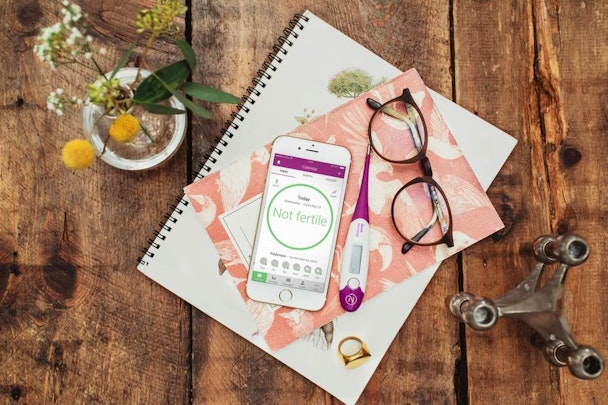I'm a doctor, and I think influencer marketing presents a serious ethical dilemma for brands
I am doctor with an interest in women’s health and family planning. I am also a woman in my 20s with Instagram, who like thousands of others, follows a range of Instagram influencers.

Endorsing a contraceptive isn't like promoting a new lipstick or eye shadow / Natural Cycles
Back in December 2017 while scrolling through my feed, I came across something shocking and seriously concerning; an ad for Natural Cycles, a mobile app advertised as an 'effective method of contraception' (according to its website).
It was not one of the in-feed ads I’d seen before, (presumably targeted based on my age and gender).
Instead, it was a sponsored post from a well-known influencer.
The photo showed her holding a thermometer, provided through the online subscription to the app, with the caption describing her journey battling with acne and deciding to come off the contraceptive pill in favour of her learning “so much about [her] body and doing it all the ‘natural’ way”.
Much of the discussion below the post was concerning.
Countless women excitedly tagged their friends with comments like: “can we??!” and remarks such as: “I’ve been wanting to come off the pill for a while now as I’m not a fan of artificial methods” and: “how are you getting on with it? I’m thinking of trying”.
Within Instagram, I followed a link to other influencers who had tagged Natural Cycles in their photo and the comments portrayed a similar enthusiasm.
I was troubled to see influencers being handpicked to market Natural Cycles to their hundreds of thousands of followers, mainly comprised of young and potentially impressionable women.
The initial post I saw was clearly implying the influencer used Natural Cycles, with her later commenting that it worked for her and that she only shares products she has used and trusts.
I posted comments to highlight my concerns about promoting this method, the lack of reliable research to support it and a link to the NHS website. I was not alone in my concerns, others joined in:
Following on from our comments, the original caption was edited (after already many likes and comments) to include: "This is for 18+ & doesn't protect against STDs. This is my choice of contraception for now and it works for me but please consult a GP before changing your method".
Myself and two others submitted complaints about Natural Cycles to the Advertising Standards Authority (ASA).
Our complaints came amid an investigation from the watchdog into the Swedish brand's Facebook marketing.
While the ASA didn't focus on the influencers promoting the app, eight months later it was headline news that Natural Cycles had "misled" customers in exaggerating its effectiveness in a Facebook ad. This was despite a flurry of studies published by the company that claimed if used perfectly it had a 99% efficacy rate, with a typical use rate of 93%.
So a result, of sorts.
When I saw the influencer's post, a lack of reliable evidence was one of my main concerns.
The key issue, though, was the use of influencers to market a contraceptive app.
Influencers are being paid to post pictures implying they use the app, along with a positive caption.
Unlike endorsing a new lipstick or eye shadow, there’s absolutely no way of knowing if an online personality is actually using it and can give a reliable testimony.
Also, unlike trying some new makeup, if it doesn’t work out, the consequences could be life changing.
It’s potentially the perfect storm in an age where people are addicted to their phones, with concepts like natural, organic, clean eating and wellness becoming increasingly popular and where ‘hormone free’ is often regarded as the best option. Here is a mobile app, claiming to be a natural, effective contraception, advertised via influencers who align with these values, and whom have huge sway over what their followers believe and buy.
Influencers are a big part of modern marketing but it would seem women are now turning to and trusting them to guide their contraceptive choices.
Ethically are we happy to have influencers paid to impact on women’s decision making around something so important and endorse a form of contraception not currently recommended by health care professionals?
Francesca Paltenghi is a trainee GP with an interest in sexual health
